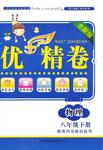题目内容
Summer reading for kids need not be about summer itself. But is there a better time to read about family vacations,flagwaving,lemonade stands or baseball? USA Today reviews four new books for young readers: Pictures from Our Vacation Written and illustrated by Lynne Rae Perkins Greenwillow,31 pp., $16. 99 (ages 4 ~8) Here's a lovely,picture book that's about all the things pictures can't capture. It,s narrated by two kids whose mom equips them with cameras to record the family vacation to their grandparents' farm. But how do you photograph the past? "Our dad saw happy memories everywhere he looked. All we could see was old furniture and dust. " They learn " it's hard to take a picture of a story someone tells" or of what it feels like " falling asleep in a house full of cousins and uncles and aunts. " But some pictures you can keep in your mind. The Lemonade War By Jacqueline Davies,Houghton Mifflin,192 pp., $16 (ages 6〜:L0) Jacqueline Davies' earnest but entertaining story deals with feelings and money,and how both can get complicated. A business war erupts between Evan and younger sister Jessie over who can make the most money selling lemonade. Evan,who's heading into fourth grade,is "people smart" but struggles with long division. Jessie,who's skipping third grade,is "math smart" but has trouble figuring out people. They learn lessons about joint ventures,underselling and crisis management. Good reading for young capitalists. You're a Grand Old Flag By George M. Cohan,illustrated by Warren Kimble Walker,23 pp., $16. 95 (ages 5〜8) Who remembers George M. Cohan's 1906 musical,George Washington Jr.?
But who can forget the show's stirring hit song,You 're a Grand Old Flag? It was the first song from a musical to sell more than 1 million copies of sheet music. Warren Kimble,a folk artist who paints on pieces of 18thcentury wood,puts Cohan's lyrics (歌词) into delightful visual images that include a scarecrow dressed as Uncle Sam.
The Longest Season By Cal Ripken Jr.,illustrated by Ron Mazellan Philomel,32 pp., $16. 99 (ages 6 and up) By playing in 2,632 continous majorleague baseball games,Cal Ripken Jr. gave new meaning to the concept of showing up. But his book deals with the low point of his career,in 1988,when the Baltimore Orioles set another kind of record by losing their first 21 games. His teammates included his younger brother Bill. Their manager was Cal Ripken Sr.,who was fired after six losses. The book is dramatically illustrated,but Ripken was a far better ballplayer than writer. He explores one of sports' most neglected (疏忽) topics―what you learn by losing―but stays safely within lockerroom cliches (陈词滥调) .Still,it should prompt discussions―about winning and losing.
( ) 1.The passage is written to .
A. sell the books for the old people
B. introduce the books to the children
C. advertise for the Publishing House
D. teach us how to read new books
( ) 2. A four-year-old boy who likes reading picture books will prefer to buy .
A. Pictures from Our Vacation B. The Lemonade War
C. You're a Grand Old Flag D. The Longest Season
( ) 3. Which of the following statements is true?
A. Jacqueline Da vies' story deals with the low point of one's life.
B. Cal Pipken Jr. never failed in his sports career.
C. You 're a Grand Old Flag was a successful song from a musical.
D. Two kids in Lynne Rae Perkins' story found magic things in the old furniture.
( ) 4. Why are the four books picked out among the others?
A. Because they are all very cheap in summer holiday.
B. Because they are all popular topic.
C. Because they will draw the mother's attention.
D. Because they are fit for the children to cure summer boredom.
1. B本文主要是介绍四本儿童读物,并没有劝人买书的意图。所以选B.
2. A从书的介绍得知Pictures from Our Vacation 是一本适合4岁儿童阅读的图画书。
3. C A项错误,因为原文提到Jacqueline Davies' earnest but entertaining story deals with feelings and money; B项不符合文章的介绍;D项表述与Our dad saw happy memories everywhere he looked. All we could see was old furniture and dust不符合。
4. D文章第1段提到了这些书是给孩子们解闷的。

 优加精卷系列答案
优加精卷系列答案